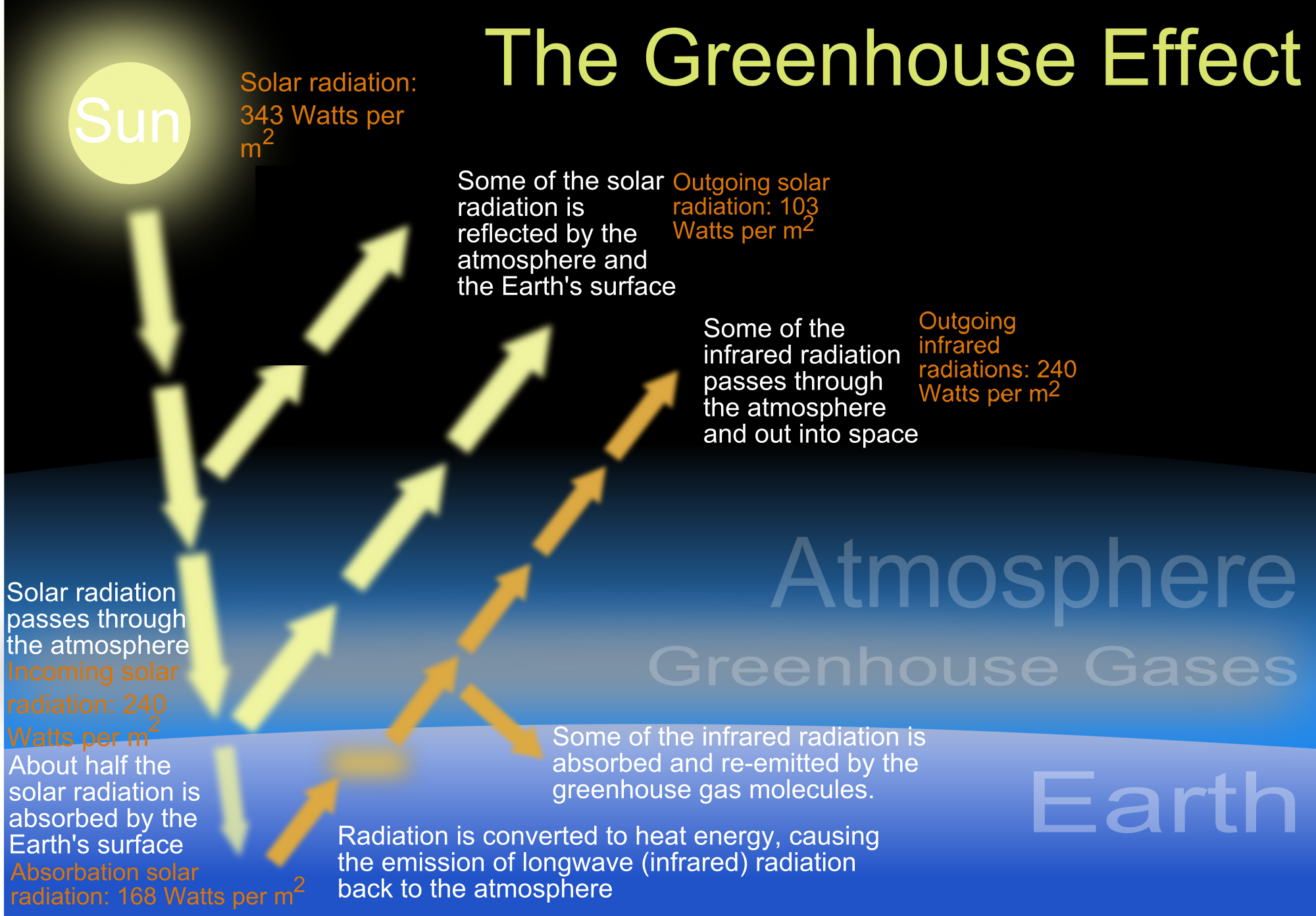Humans today are relying very
heavily on carbon dioxide to fuel our way of life. We expel tons of carbon into
the atmosphere every year from industry, agriculture, and from our own daily activities.
Carbon emissions stay trapped in the atmosphere and cause a greater level of insulation
of the sun’s heat, causing the earth’s temperature to increase. This phenomenon
commonly referred to as global warming.
 |
| The greenhouse effect explains how increased levels of carbon dioxide contribute to the increased temperatures of earth. |
While many people are familiar with
the concept of global warming, significantly fewer people know about an equally
problematic result of carbon emissions: ocean acidification. About 30-40% of carbon
emissions get sucked into the oceans and have drastic effects on ecosystems.
Some of this carbon combines with water and forms carbonic acid. An increased amount
of carbonic acid causes there to be more hydrogen ions and thus a lower pH
because there is a higher acidity. From 1751 to 1994, the oceanic pH dropped
from 8.25 to 8.14 with an almost 30% increase in hydrogen ion concentration.
Acidification also adds to coral
bleaching. Corals have a symbiotic relationship with an algae called zooxanthellae. The algae provides the corals with increased nutrients from photosynthesis while the coral provides it
with a home. Due to increased acidity levels, the coral cannot sustain the
algae so it expels it and the coral turns white because the algae give it color. Because it lacks the algae, the coral therefore cannot get as many
nutrients and is therefore more likely to perish. The carbonic acid resulting from ocean acidification also causes calcium
carbonate to disintegrate, which is the substance that corals use to create
their skeletons. It is therefore harder for corals to grow and even if they do have
algae with them, they are more likely to die.
Corals are the most diverse
ecosystems in the ocean (25% oceanic animal species live in them even though
corals make up less than 1% of the ocean floor) and if they perish, so will all
of the species that call reefs home. Coral death would cause many organisms to be without homes
and many food chains would be disrupted. The diversity in the ecosystem would greatly decrease, and many organisms which we might even use for food would also die. Many animals would die and humans would also be unable to get many kinds of food.
Sources:
http://www.pmel.noaa.gov/co2/story/Ocean+Acidification
http://www3.epa.gov/climatechange/kids/basics/today/greenhouse-effect.html
No comments:
Post a Comment